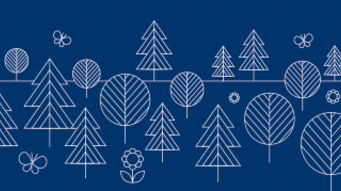Leadership
Inspiring the minds that lead the world
Yale’s teaching and research reaches far beyond the classroom. From developing national rankings for resource use to improving air quality in rural developing country homes, Yale’s thought leadership builds a more sustainable world.
Yale’s Efforts
- Yale plays a leadership role in creating strategic partnerships, both locally and amongst our Peer Institutions.
- As we integrate sustainability into the scholarship and operations of the university and position Yale as a local and global leader, the YSP 2025 governance bodies ensure this process is dynamic, iterative, and inclusive.
What You Can Do
- Explore opportunities for teaching, learning and research in sustainability at Yale.
- Learn about the New Haven Climate and Sustainability Framework and ways to engage in New Haven.
Our Objectives and Goals
Teaching, Research, Learning, and Service
Enrich and enhance teaching, research, learning, and service that explore and contribute to sustainability solutions.
In fall 2024, sixteen U.N. resident coordinators attended a four-day seminar hosted by the International Leadership Center at Yale Jackson School of Global Affairs to learn skills and insights that will help them address the triple planetary threat of climate change, pollution, and the loss of Earth’s biodiversity. The diplomats, who are stationed in countries throughout the Global South, engaged with Yale faculty as well as the Jackson School’s senior fellows and world fellows on a range of topics, including strategies for reducing greenhouse gas emissions, communicating effectively about environmental issues, and building effective partnerships to combat climate change.
Sustainability Working Group
By 2017, establish a set of interdisciplinary working groups to be identified by faculty conveners. Working groups will focus on teaching, research, and service around key themes such as urbanization, health, food systems, land use, and climate change.
We achieved this goal in 2017. Since then, interdisciplinary efforts have evolved and expanded, particularly through Yale Planetary Solutions (YPS). In 2024–2025, YPS held ColLABoratories, which invited community members, scholars, and practitioners to exchange ideas about Yale’s role in addressing environmental challenges. YPS continues to support faculty-initiated collaborative opportunities to spur new projects and seek external funding for novel efforts.
Applied Research and Active Learning
By 2018, identify and support institutional pathways for applied research, active learning, and the use of the campus as a living laboratory.
We achieved this goal in 2019, but the work is robust and ongoing. As of 2025, the YPS Grant Program has supported eighty-nine projects originating from both faculty and staff across the Faculty of Arts and Sciences and nine professional schools. Recent projects range from destroying refrigerant gases at the sites of cooling equipment and storage tanks to redesigning a food donation app to reduce food waste.
Sustainability Network
By 2019, establish a network to foster communication across the University on sustainability research and teaching, and to build connections between the University’s scholarship and operations.
This goal was achieved in 2020 with the creation of Yale Planetary Solutions (YPS), an initiative supporting Yale’s research and operations to find transformative solutions for complex environmental problems. In fall 2023, Yale appointed its inaugural vice provost for planetary solutions, who will help accelerate and elevate these efforts. YPS catalyzes planetary solutions through all that Yale is and all that Yale does, engaging the entire Yale community and our partners worldwide.
Leading Dialogues
Act as a convening voice and leader for dialogues about local, national, and global sustainability challenges
Town-Gown Collaboration
By 2025, aim to support a suite of projects in collaboration with the City of New Haven and local area groups that enhance equity, the economy, and the environment.
This goal was established to enhance collaboration between Yale and its neighbors in order to advance sustainability. Since 2016 we have cohosted conferences, including “Forging University-Municipality Partnerships Toward Urban Sustainability”; worked to document town-gown partnerships; collaborated on efforts to improve mobility, stormwater management, and health; and created fellowship opportunities for students to support local organizations advancing climate solutions.
External Collaboration
By 2019, develop a strategic plan to chart the course for ambitious national and international collaborations on sustainability research, teaching, and practice.
This goal was achieved in 2019 through collaborations with regional, national, international and networks. Since then, efforts have focused on collaboration with offices of sustainability from other institutions of higher education, most specifically on scope 3 emissions accounting; justice, equity, diversity, and inclusion; carbon neutrality; and capacity building.
Sustainable Solutions Association
By 2020, formalize an alliance of Yale alumni, donors, and friends to cultivate enduring and meaningful dialogues about sustainability challenges and successes.
This goal was achieved in 2020 when Yale Blue Green launched its Sustainability Initiative, an alumni effort helping Yale strengthen its commitment to leadership in sustainability. In 2025, the Initiative supported research associated with sustainability benchmarking; communications and outreach; and scope 3 emissions.











